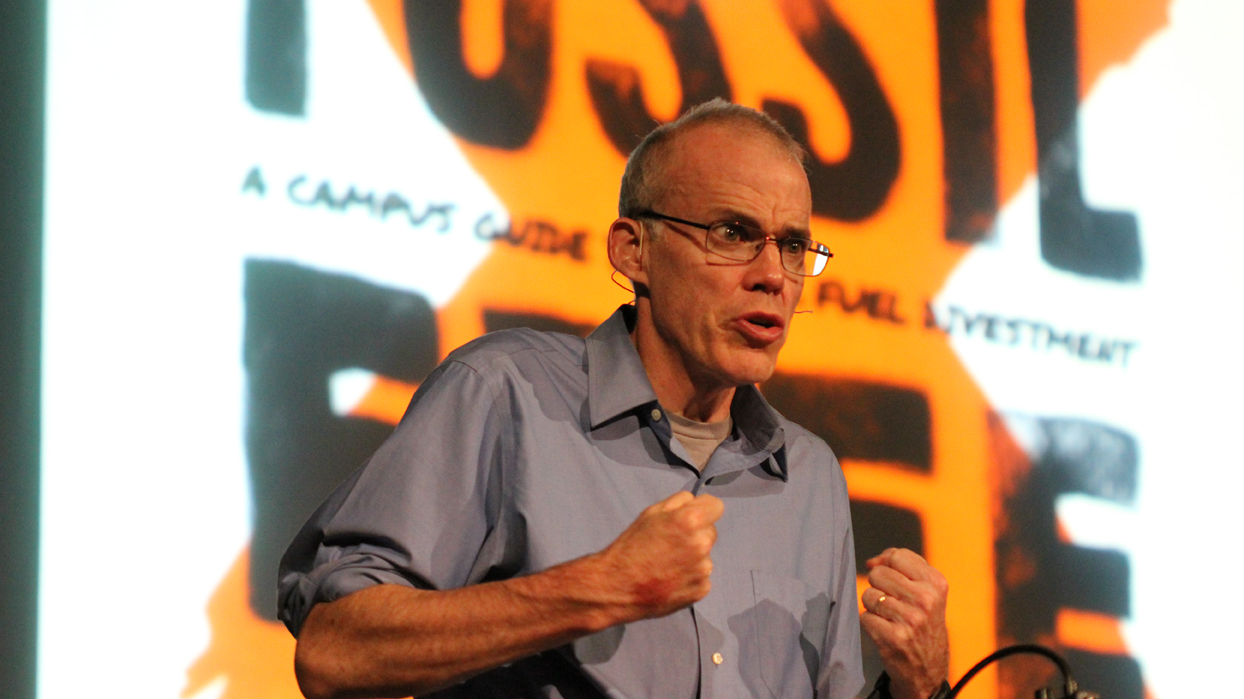Photo credit: Steve Liptay
Bill McKibben, Co-founder of 350.org and – dare I say it – one of the most famous climate activist, has given his opinion about the latest IPCC assessment report on climate change. In the text, which was published in The Guardian, McKibben says that scientists have given us the clearest warning of the dangers of global warming yet.
“At this point, the scientists who run the Intergovernmental Panel on Climate Change must feel like it’s time to trade their satellites, their carefully calibrated thermometers and spectrometers, their finely tuned computer models – all of them for a thesaurus. Surely, somewhere, there must be words that will prompt the world’s leaders to act.
This week, with the release of their new synthesis report, they are trying the words “severe, widespread, and irreversible” to describe the effects of climate change – which for scientists, conservative by nature, falls just short of announcing that climate change will produce a zombie apocalypse plus random beheadings plus Ebola. It’s hard to imagine how they will up the language in time for the next big global confab in Paris.”
McKibben warns (and rightfully so) that the IPCC documents “almost certainly underestimates the actual severity of” climate change and the situation we're in.
And this is important to know. The IPCC operates on consensus among the member nations of the United Nations, which means that the words chosen in documents and reports from the IPCC will undoubtedly reflect political compromises. Another problem is that the IPCC’s reports are based on science that is already several years old. David Spratt, an Australia-based climate blogger, pointed out just this for Al Jazeera. “The cutoff date is three to four years before it’s published, meaning this report is the extent of climate science in 2010 — and a number of things have happened since then,” Spratt said. McKibben writes that “it’s a particular problem with sea level rise, since the current IPCC document does not even include the finding in May that the great Antarctic ice sheets have begun to melt. (The studies were published after the IPCC’s cutoff date.)” As such, the IPCC reports should be viewed as conservative estimates and statements of climate change.
Despite this, McKibben says that we should continue to fight for climate action and that a lot of progress have been made – although we need to do much more.
“Breaking the power of the fossil fuel industry won’t be easy, especially since it has to happen fast. It has to happen, in fact, before the carbon we’ve unleashed into the atmosphere breaks the planet. I’m not certain we’ll win this fight – but, thanks to the IPCC, no one will ever be able to say they weren’t warned.”



Recommended Comments
Join the conversation
You can post now and register later. If you have an account, sign in now to post with your account.